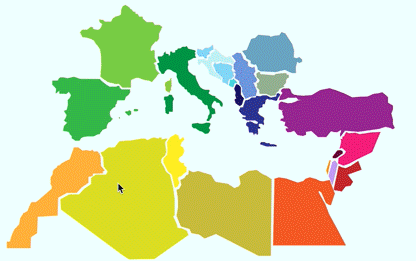The Tunisian Kaouther Ben Hania and the British-born Palestinian Farah Nabulsi are the two Arab women directors in competition for the 93rd Academy Awards.

“The Man Who Sold His Skin” by Kaouther Ben Hania
Kaouther Ben Hania’s “The Man Who Sold His Skin” is one of 15 films competing for the Oscar for Best International Feature. The central character is Yahya Mahayni, a Syrian refugee in Lebanon who, in return for his freedom, agrees to let his body be turned into a work of art. Inspired by a true story, this “satire of the art world” is a complex study of a refugee’s struggle with immigration laws.
The Franco-Tunisian co-production has already been shown at the 2020 Carthage Cinematographic Days (JCC).
“The Present” by Farah Nabulsi
Palestinian-British film-maker Farah Nabulsi’s “The Present” has been nominated in the Live Action Short Film category.
Shot in less than a week in Palestine, the film follows Yousef and his daughter as they set off to find a wedding anniversary present for their wife and mother. A task which turns out to be almost impossible and shows the difficulties of life under Israeli occupation.
The film has already won the Orizzonti Award for Best Actor at the Venice Film Festival and the Audience Award at the Clermont-Ferrand International Short Film Festival in 2020.
There are other films from the region also in competition for this year’s Oscars, including Majid Majidi’s “Sun Children” about forced child labour in Iran (Best International Feature category), and Tomer Shushan’s “White Eye” representing Israel in the Live Action Short Film category.
#OscarsSoWhite, the call for greater diversity
The official Oscar nominations will be announced on March 15th and the winners presented at the 93rd Academy Awards ceremony on April 25th in Los Angeles.
The American Academy of Motion Picture Arts and Sciences has organized the event since 1929. 7,000 actors and industry professionals choose the winners in the 24 different categories.
Since 2020 the event has come under pressure from the #OscarsSoWhite hashtag on social media, demanding more diversity and inclusion. A study revealed a glaring lack of social mix of gender and race among the Academy’s members, with 77% being male and 93% white.
For more information about cinema from the Arab World and the Mediterranean, click here.
Sources: cinématunisien.com, arabnews.com, jpost.com, thenationalnews.com, oscars.org, 20minutes.fr, nytimes.com









